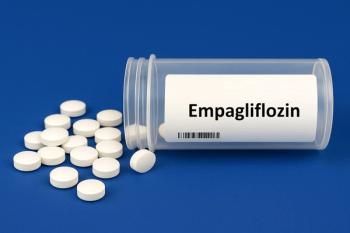
Cost Effectiveness of Vonoprazan to Manage Refractory Heartburn in Erosive Esophagitis
Vonoprazan appeared to be cost saving below a threshold price of $8.57 per pill.
Patients with erosive esophagitis who fail OTC lansoprazole therapy may find vonoprazan to be a cost-effective way to help manage refractory heartburn, according to research presented at the Digestive Disease Week 2023 annual meeting.1
Investigators used a Markov model to conduct a cost-effectiveness analysis from a patient perspective and a cost-minimization analysis from an insurer perspective on the appropriate positioning of vonoprazan in a value-based environment to manage heartburn. The study compared unrestricted daily access to 20 mg of vonoprazan, formulary-restricted daily access to 20mg of vonoprazan despite 30 mg of daily OTC lansoprazole, and no access to vonoprazan.
Data on health utilities that translate into quality-adjusted life years – such as costs, work productivity impairment and effectiveness – with ongoing bothersome heartburn was gathered from observational studies in commercially insured populations with gastroesophageal reflux disease.
Investigators found that formulary-restricted vonoprazan despite OTC lansoprazole was more cost-saving and more effective than no treatment from a patient perspective. Preferences toward daily use of vonoprazan or lansoprazole as an up-front treatment depended on comparative expectations on heartburn-free days.
Additionally, it was found that vonoprazan appeared to be cost saving below a threshold price of $8.57 per pill for patients failing 30mg of daily OTC lansoprazole. This threshold price varied according to the assumed vonoprazan response rate and expected healthcare utilization among patients with refractory gastroesophageal reflux disease symptoms.
“Vonoprazan appears cost-effective to manage refractory heartburn for patients with erosive esophagitis who fail OTC lansoprazole therapy,” the investigators concluded. “While vonoprazan is not FDA approved to treat erosive esophagitis, our findings suggest that future potential insurance coverage guidelines should adhere to clinical evidence and follow decisions from regulatory agencies.”
Reference
1. Shah ED, Curley MA, Yadlapati R, et al. Heartburn in Patients With Reflux Esophagitis Failing An Over-the-Counter Proton Pump Inhibitor. Presented at: Digestive Disease Week; May 6-9, 2023; Chicago, IL. Poster 1314.
Newsletter
Pharmacy practice is always changing. Stay ahead of the curve with the Drug Topics newsletter and get the latest drug information, industry trends, and patient care tips.























